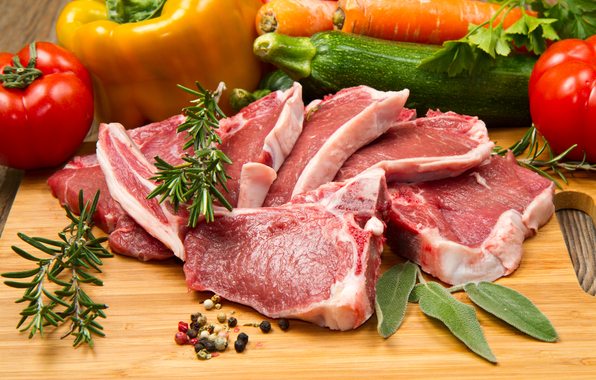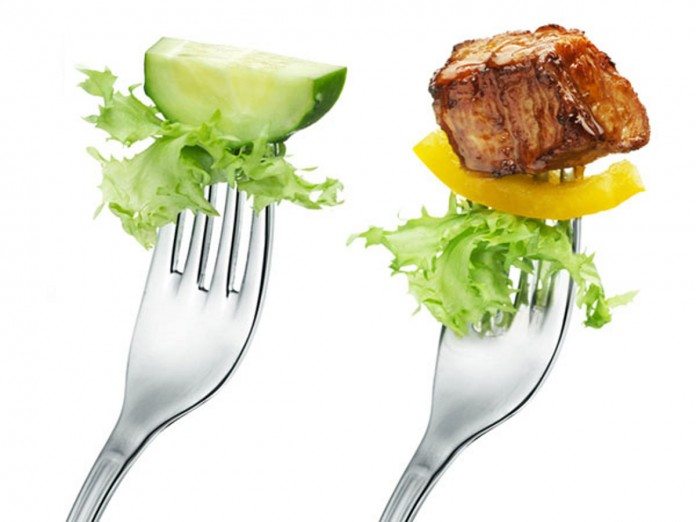There has been debate after debate for decades now as to whether being Vegan or Non-Vegan is the healthy way to go. Each group accuses the other of being ridiculous in their eating ways, and each cites the benefits of sticking to a vegetable-based or an animal-based diet. Putting aside the fact that animals are slaughtered ruthlessly for their meat or that vegans tend to be a little annoying with their eating habits, we look at the actual proof of dieting pros and cons for each of the groups.
VEGAN
As we all know now, thanks to the likes of Hollywood stars like Gwyneth Paltrow, Ellen DeGeneres and Jennifer Aniston, among others, a vegan diet is purely fresh produce based and includes plants, vegetables, fruits, legumes and pulses. Those on the more extreme side will eat food only in its raw form, though most vegans prefer traditional cooking methods. However, there is a strict prohibition of eating anything related to an animal, be it meat, organs or even by-products like milk and milk products. Here are the scientifically proven pros and cons of going vegan:

Pros
– A vegan diet is extremely easy to digest. Food is in and out within a day and because most veggies have fibre, your digestive system is cleaned on a regular basis, thus avoiding gut problems like bloating.
– Plants come in all shapes, sizes, colors and taste. This makes eating a fun experience. Imagine looking at a place that is as colorful and varied as the rainbow. Each color signifies unique nutrients and properties that are so good for overall human health.
– Have you ever found a vegan that is obese? The fact that meals are based on fresh produce with little cooking taking place, reduces fat consumption and leaves the consumer more fit in the long run.
Cons
– Protein deficiency is one of the main problems for vegans. The truth is, how many beans can you eat to keep up with the daily protein requirement? True, you can take supplements, but even milk has calcium that cannot compare with any veggie alternative.
– Most vegans are found to be anemic. Why? Because iron is hard to come by when you eat food that resembles grass. There are certain nutrients richly available in animal products that cannot be substituted by plants.
– Vegans are never known to be strong nor build good muscle. If you want to be the next world famous wrestler, then indulging in a rainbow colored platter is not for you.
NON-VEGAN
Have you heard of the Paleo diet? It relates to earliest man’s way of eating that involved loads of animal products including meat and dairy. And what we know from our ancestors is that they lived really long lives. There is no denying that meat has played a crucial role and provides us with good nutrition that can compare with no other. Here are the scientifically proven pros and cons of being a non-vegan:

Pros
– Meat is extremely rich in many nutrients such as protein, iron, zinc and others. Dairy is also known for its anti-bacterial properties and abundant calcium content. Those who regularly consume both are said to have stronger bones and thicker muscles.
– Meat, when prepared and consumed the right way, actually keeps the person lean and yet, tough. It is because of the added cooking processes that include deep frying, sauces and other add-ons that are the cause of meat seeming to be fattening. In fact, it is not.
– By consuming a by-product of meat, say meat bone soup or broth, a person is able to heal faster. Also, these products can be used for other purposes like gelatin and other consumable essentials.
Cons
– It is known that those who are regular meat eaters are more likely to suffer from many health complications that include cholesterol issues to heart diseases and diabetes.
– It takes meat a longer time to digest and this in time slows down the digestive process. Those who eat meat in large quantities are less likely to live a long, healthy life.
– Meat eaters tend to be more aggressive in nature and are prone to heat-related illnesses because of the nature of consuming flesh. Also, bloating is another major concern from eating dairy products that results in digestive problems.
It can be concluded that sticking to either extreme diet will not help the body. A more balanced approach is recommended, while being modest in the way we prepare our meals. For example, veggies and meats should simply be steamed or grilled, rather than involving complex cooking methods that reduces the nutrients and authenticity of the product.











